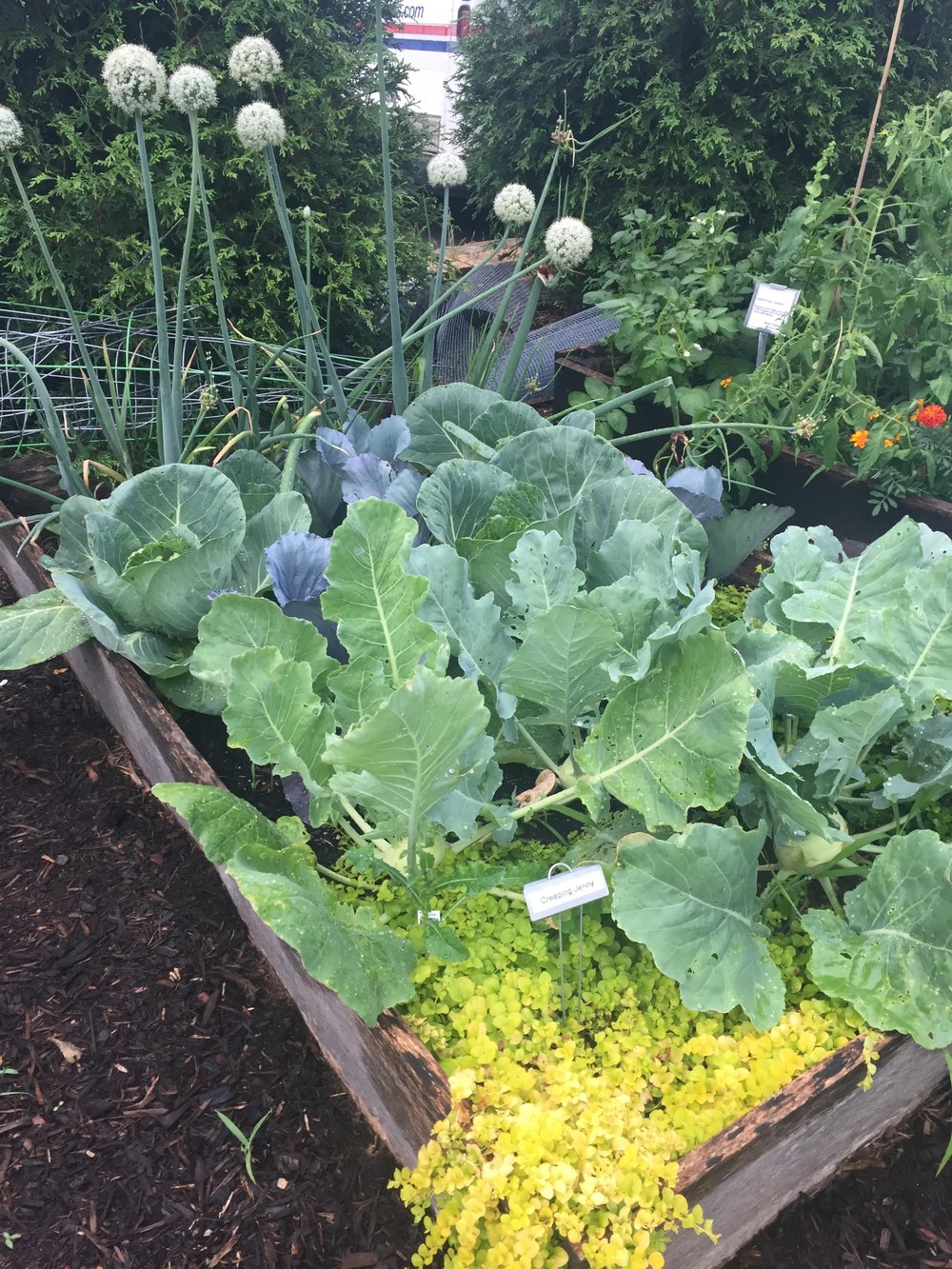The Passavant House Garden, located at 243 South Main Street in Zelienople, literally brings history to life.

The Vegetable Gardens at Passavant House
The garden is open to the public daily during daylight hours and free admission lure gardeners and historians alike to take a journey back in time.
The Passavant House was built in 1808 by Philippe Passavant. The original gardens were established by his wife Zelie, daughter of Zelienople founder Dettmar Basse. Today's garden at Passavant House is maintained as a collaborative effort of the Zelienople Historical Society and the Penn State Extension Butler County Master Gardeners, along with contributions from The Southern Butler County Garden Club and The Oak Hills Garden Club.
Zelie Passavant's original gardens have been recreated based on research by members of the Historical Society, using direct references from Zelie's personal correspondence and journals as the inspiration for and interpretation of the current gardens.
An excerpt from correspondence on April 30, 1833, offers a glimpse into Zelie's gardening life,
"…all my other seeds even the flowers, are safely in the ground, waiting only for some much-needed showers of rain to come out in all that wonderful variety of foliage with which nature has endowed them. Notwithstanding the extreme dryness that seems to prevent vegetation, not only are my peas, horse beans, spinach, onions and salad up, but likewise my beets, bunch squashes, and early beans. Indeed, our garden just now is clothed in surpassing loveliness. The graceful almond blossoms, the modest purple flags of the borders, and the splendid apple blossoms, that change each tree into an immense bouquet, call forth continually my wonder and my admiration at the beauties of nature…"
In her writings, Zelie is perceived as an industrious gardener, as well as a woman who enjoyed the beauty of the garden. Over 150 years later, today's gardens continue to reflect Zelie's personality and values.
Currently, there are five distinct garden spaces that border a central gazebo: herb, vegetable, perennial, and rose gardens. A newly-planted apple orchard serves as the fifth garden space. Plant markers identify the individual plants and provide information about each specimen.
The traditional herb garden is located near the summer kitchen. Culinary herbs such as basil, chives, dill, and winter savory flourish, as well as medicinal herbs including bee balm, chamomile, hyssop, lovage, tansy, and yarrow.
In the raised bed vegetable garden, cabbage, carrots, chard, kohlrabi, lima beans, and turnips are grown. Several varieties of heirloom tomatoes, including the German pink tomato, round out the garden space. Central to the raised beds is an obelisk planted with scarlet runner and purple hyacinth beans. Sweet autumn clematis, which is a historical variety possibly grown during Zelie's time, and colorful nasturtium complete the space. Potatoes are grown traditionally using a wooden barrel.
The perennial flower border is planted with native plants that attract pollinators. An interesting feature are two of Zelie's favorite flowers: an unusual variety of double lily and "pinks" (dianthus).
The rose garden features varieties of old world roses from the French House of Meilland and W. Kordes' Sohne of Germany. These varieties were chosen to honor the origins of German-born Zelie and her French husband, Phillippe.
The apple orchard features three heritage apple trees: McIntosh, Newtown Pippin, and Cox Orange Pippin. While used for pollination in the orchard, McIntosh apples serve as an all-purpose variety, particularly for pie baking. The Newtown Pippin Apple is one of the oldest varieties of American apple, and the Cox Orange Pippin Apple is good for cider making and cooking.
If you have questions regarding the Passavant House history or to arrange a docent-led tour of the Passavant House and Gardens, contact The Zelienople Historical Society at 724-452-9457 between 9 AM and noon daily. If you have questions regarding perennial gardening, contact the Master Gardener Hotline at 724-287-4761 ext. 7 or email the Master Gardeners at butlermg@psu.edu.
by Jacquie Bartley
From the August 7, 2021 edition of the Butler Eagle

